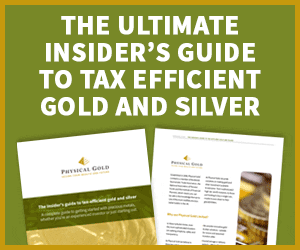Industry News
Revealed for the first time: just how much gold is in London’s vaults
London has long been acknowledged as the biggest gold trading centre in the world, but no one has ever been able to say for sure how much gold is stored in the capital – until now.
New data has revealed that around 7,500 tonnes of gold was held in London in March of this year – the equivalent of 596,000 gold bars, or £227bn-worth of gold.
The data was published by the London Bullion Market Association (LBMA) 

Around 68pc of London’s physical store of gold is held at the Bank of England, which has around 5,100 tonnes in its vaults. The Bank looks after the UK’s gold reserves and also holds the metal for other central banks.
The rest of the gold, or around 2,500 tonnes, is held for use by investors, and traded through banks and other clearing houses that are members of the LBMA.
By comparison, there are an estimated 187,200 tonnes of gold above ground in the world, according to Thomson Reuters’ annual gold survey. This means that London’s total accounts for just 4pc of global stocks – although the LBMA data does not include jewellery or holdings by private individuals.
The Bank of England’s gold pile is slightly smaller than that of the US Federal Reserve, which holds around 6,700 tonnes of gold.


The LBMA data will be published with a three-month delay, and encompasses all gold holdings within the M25.
Apart from the Bank of England, there are just seven custodians of gold in London: security firms Brinks, G4S Cash Solutions, Malca-Amit and Loomis International; and banks HSBC, ICBC Standard Bank and JP Morgan.
Around £13.8bn worth of gold is traded each day in London, according the LBMA.
The data also revealed that London’s vaults held 32,078 tonnes of silver in March, worth £14.5bn.
Ruth Crowell, chief executive of the association, said: “‘How much gold and silver is there in the London vaults?’ It’s a question that I’ve been asked since I joined the market a decade ago and one I’m sure that was asked many years before.
“Today, I’m delighted not only to give a meaningful answer, but also to announce that these numbers will be available monthly from now on.”
Joni Teves, an analyst at UBS, said: “The more detail and information about the market, the better chance of understanding market dynamics and putting the various pieces of the puzzle together.
“Maybe it will even be of interest to those outside the industry to finally have some idea of how many gold bars – like the ones in the movies – are actually sitting in vaults in one of the world’s busiest cities.”


According to Ms Teves’ analysis, around 1,485 tonnes of gold in London, worth about £45.7bn, are used to underpin so-called Exchange Traded Funds.
Gold ETFs are financial products that allow investors to track the prices of the metal without owning the underlying commodity itself. However the funds are usually – though not always – backed up by physical gold, which can sometimes be stored in a different country. ETFs are listed and can be bought and sold in the same way as ordinary shares.
Gold is currently trading around $1,267 an ounce, up 10.44pc this year. Some investors have been put off buying gold because the US Federal Reserve is widely expected to raise interest rates again this year, which is likely to knock the value of the metal.
However Ms Teves said demand for physical gold had been “stable” so far this year.



How much did we hold before Gordon brown sold of large amount at an all time low price